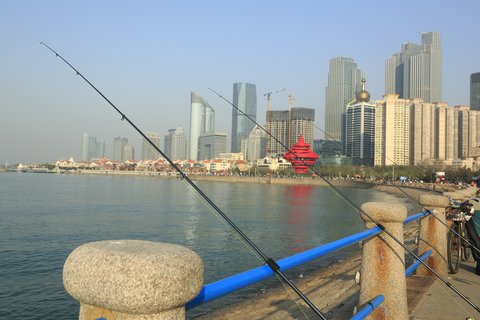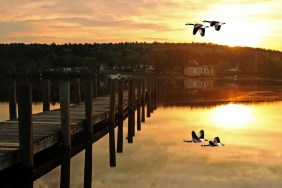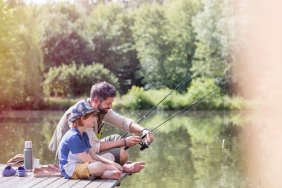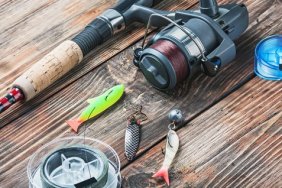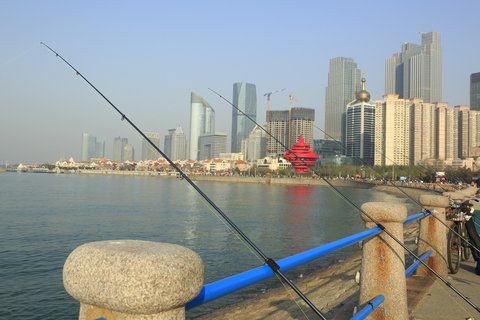
There is a rich tradition among anglers that involves getting out of the city and going to a remote, peaceful wooded lake to fish. But a new wave is sweeping across the country, which involves staying in the city to fish urban lakes and rivers.
Thanks to decades of pollution control, new high-quality fisheries are emerging in big cities all across America. Where once urban lakes and rivers were nothing more than polluted, lifeless industrial zones, there are now thriving fisheries, which are becoming a boon to savvy anglers.
A great example is the Mississippi River in Minneapolis. During the 1960s, this stretch of water was nearly devoid of fish, due to the pollutants being pumped into the river by surrounding industries. Gradually, more stringent pollution control regulations, like the Clean Water Act, went into effect and the water became cleaner. It took some time, but fish started reappearing and repopulating the portion of the river between Minneapolis and St. Paul. Populations of walleye, largemouth bass and northern pike grew and flourished.
Today, the Twin Cities’ portion of the Mississippi is one of the hottest fisheries in a state full of quality angling opportunities. Although limited to catch-and-release at this point, anglers are catching double-digit walleyes and some monster bass.
Minneapolis is not the only place this is happening. The Detroit River is another great example of a polluted cesspool being restored to a quality fishery, where anglers now feast on exceptional walleye and smallmouth bass fishing. In Atlanta, anglers are catching rainbow trout on the Chattahoochee River. In Milwaukee, anglers can land amazing steelhead and salmon. Similar scenes are being played out in cities across the country.
And freshwater anglers are not the only ones benefitting from cleaner urban water. Saltwater anglers in areas like New York City and Boston are cashing in on emerging fisheries that have resulted from pollution control. In areas where no fish could be found a few decades ago, anglers are now enjoying quality fishing opportunities for species like striped bass and bluefish.
Another boost to urban angling has come from state fisheries departments working to make quality fishing experiences more accessible to urban populations. Urban lakes and ponds are being cleaned up, stocked and heavily managed for fishing.
Going back to Minneapolis, anglers can fish a number of lakes within a few miles of downtown skyscrapers, which hold muskies, northerns, walleyes and bass.
Anglers who have not tried urban fishing are missing out on some of the fastest growing angling opportunities in the country. In many cases these fisheries are underutilized and underpublicized, meaning the fish may receive less pressure than popular waters in rural areas. And for city dwellers, the chance to fish close to home, means more time can be spent on the water.
